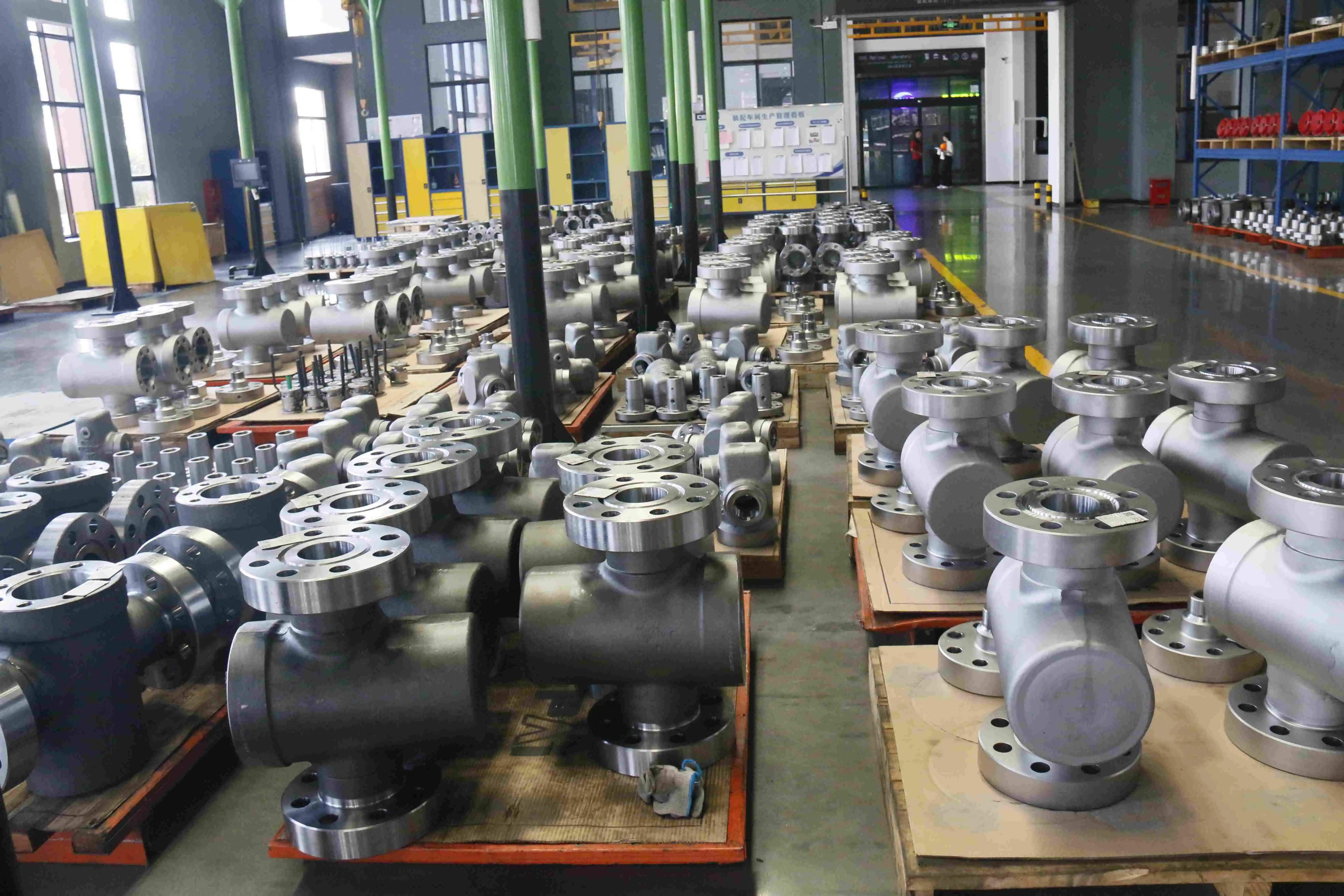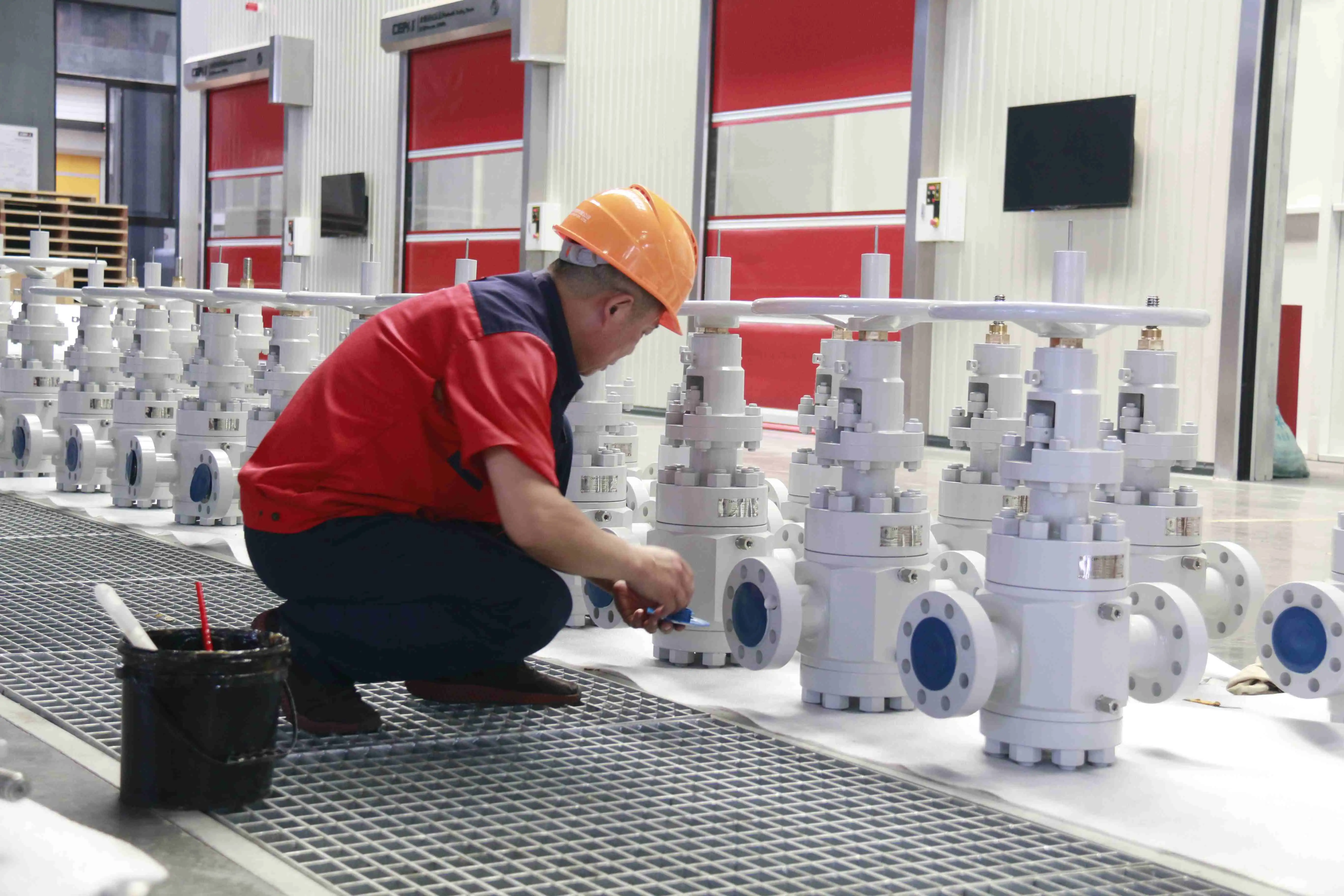How Electric Control Valves Are Revolutionizing HVAC Systems
Building owners and facility managers worldwide face an escalating challenge: skyrocketing energy costs coupled with increasingly stringent efficiency regulations. Traditional HVAC control systems often struggle to maintain precise temperature control while consuming excessive energy, leading to uncomfortable indoor environments and budget-draining utility bills. The Electric Control Valve emerges as the technological solution that addresses these critical pain points, transforming how modern buildings manage heating, ventilation, and air conditioning systems through intelligent automation and precision control.
Advanced Electric Control Valve Technology Transforming HVAC Performance
-
Precision Flow Control and Energy Optimization
The fundamental breakthrough that Electric Control Valve technology brings to HVAC systems lies in its ability to provide unprecedented precision in fluid flow management. Unlike traditional mechanical valves that rely on manual adjustment or basic pneumatic control, modern Electric Control Valve systems integrate sophisticated electronic actuators with advanced control algorithms to achieve micro-level adjustments in real-time. Stepper motor-driven electronic expansion valves offer very precise control of heating and cooling systems with better efficiency and performance. Modern Electric Control Valve designs incorporate variable speed control mechanisms that allow for infinitely adjustable flow rates, enabling HVAC systems to respond dynamically to changing load conditions. This capability is particularly crucial in large commercial buildings where thermal loads vary significantly throughout the day due to occupancy patterns, solar heat gain, and equipment operation. The precision control achieved through Electric Control Valve technology can reduce energy consumption by up to 35% compared to conventional control methods, while simultaneously improving comfort levels through more stable temperature maintenance.
-
Intelligent Control Systems Integration
The integration of Electric Control Valve technology with building management systems represents a quantum leap in HVAC automation capabilities. These advanced valves can communicate bidirectionally with central control systems, providing real-time feedback on flow rates, pressure differentials, and valve position while receiving precise control commands based on complex algorithms that consider multiple variables including outdoor temperature, humidity levels, occupancy sensors, and energy pricing structures. Contemporary Electric Control Valve implementations leverage Internet of Things connectivity to enable predictive maintenance capabilities, where the valve's embedded sensors monitor performance parameters and alert facility managers to potential issues before they result in system failures. This proactive approach to maintenance significantly reduces emergency repair costs and system downtime while extending the operational lifespan of HVAC equipment through optimized operating conditions.
Electric Control Valve Applications in Modern HVAC Systems

-
Chilled Water Distribution Networks
In large-scale chilled water systems serving commercial and institutional buildings, Electric Control Valve technology plays a pivotal role in maintaining optimal energy efficiency across the entire cooling loop. These precision control devices regulate the flow of chilled water to individual zones or air handling units based on real-time cooling demand, preventing the energy waste associated with oversupply while ensuring adequate cooling capacity during peak load periods. The implementation of Electric Control Valve systems in chilled water networks enables sophisticated control strategies such as variable primary flow, which eliminates the need for energy-intensive secondary pumping systems. By modulating flow rates at the point of use, these valves allow the central chilled water plant to operate at partial load conditions more efficiently, resulting in substantial energy savings through reduced compressor power consumption and improved heat exchanger performance.
-
Steam Heating System Optimization
Steam heating applications present unique challenges that Electric Control Valve technology addresses with remarkable effectiveness. The precise pressure and flow control capabilities of modern Electric Control Valve designs enable accurate steam delivery to heating coils and radiators while preventing the energy losses associated with steam bypass and condensate handling issues that plague conventional steam control systems. Advanced Electric Control Valve designs for steam applications incorporate specialized trim configurations and actuator specifications that withstand the harsh operating conditions while providing the rapid response times necessary for effective temperature control. The integration of these valves with digital control systems enables the implementation of advanced steam heating strategies such as outdoor temperature reset and demand-based heating schedules that significantly reduce fuel consumption while maintaining occupant comfort.
Benefits of Electric Control Valve Implementation
-
Energy Efficiency and Cost Reduction
The economic benefits of Electric Control Valve technology extend far beyond initial energy savings, encompassing reduced maintenance costs, extended equipment life, and improved operational flexibility. Through the electric ball valves, the industries will be in a position of saving on energy consumption, cut on the maintenance, as well as gaining much-tightened control over the processes. The precise control capabilities eliminate the hunting and cycling behaviors common in pneumatic control systems, reducing wear on pumps, compressors, and heat exchangers. Long-term operational data from buildings equipped with Electric Control Valve systems demonstrate consistent energy reductions ranging from 20% to 40% compared to conventional control methods. These savings result from multiple factors including reduced pumping energy through optimized flow rates, improved heat transfer efficiency through precise temperature control, and elimination of simultaneous heating and cooling that occurs in poorly controlled systems.
-
Enhanced System Reliability and Performance
The reliability advantages of Electric Control Valve technology stem from both the robust construction of modern electronic actuators and the elimination of compressed air systems required by pneumatic controls. Electric actuators operate reliably in extreme temperature conditions and are not affected by air quality issues that can compromise pneumatic systems, resulting in more consistent performance and reduced maintenance requirements. Performance monitoring capabilities built into Electric Control Valve systems provide facility managers with detailed operational data that enables continuous optimization of HVAC system performance. This data-driven approach to system management allows for fine-tuning of control parameters based on actual building performance rather than design assumptions, leading to improved comfort conditions and operational efficiency over time.

Future Innovations in Electric Control Valve Technology
-
Artificial Intelligence and Machine Learning Integration
The next generation of Electric Control Valve systems incorporates artificial intelligence and machine learning algorithms that continuously optimize performance based on historical data patterns and predictive analytics. These intelligent systems can anticipate building load changes based on weather forecasts, occupancy schedules, and historical usage patterns, pre-positioning valves to minimize response times and energy consumption during transitional periods. Machine learning capabilities enable Electric Control Valve systems to automatically adapt their control strategies based on building-specific characteristics and usage patterns, eliminating the need for manual commissioning adjustments and ensuring optimal performance throughout the building's operational life. This autonomous optimization capability represents a significant advancement in building automation technology, reducing the expertise required for effective system operation while improving overall performance.
-
Wireless Communication and IoT Connectivity
Advanced Electric Control Valve designs increasingly incorporate wireless communication capabilities that simplify installation and expand integration possibilities with emerging building technologies. Wireless-enabled valves can be easily retrofitted into existing HVAC systems without extensive rewiring, making the benefits of precision control accessible to older buildings that would otherwise face prohibitive installation costs. The IoT connectivity of modern Electric Control Valve systems enables integration with cloud-based building management platforms that provide advanced analytics, remote monitoring, and predictive maintenance capabilities. These platforms can aggregate data from multiple buildings to identify optimization opportunities and maintenance patterns, providing valuable insights for facility management organizations with large building portfolios.
Conclusion
Electric Control Valve technology represents a fundamental transformation in HVAC system design and operation, delivering substantial energy savings, improved comfort, and enhanced reliability through precision control and intelligent automation. The integration of these advanced valves with modern building management systems creates opportunities for unprecedented optimization of building performance while reducing environmental impact and operational costs.
Cooperate with CEPAI Group Co., LTD.
CEPAI Group Co., LTD. stands as a leading China Electric Control Valve manufacturer and China Electric Control Valve supplier, established in 2009 with over 15 years of expertise in high-precision fluid control solutions. Located in Jiangsu Province with a 56,000 square meter manufacturing facility, CEPAI combines advanced intelligent manufacturing capabilities with rigorous quality control standards to deliver High Quality Electric Control Valve solutions for global HVAC applications.
As a nationally recognized high-tech enterprise and specialized "little giant" company, CEPAI has earned certifications including API, ISO 9001, CE, and SIL safety integrity levels, ensuring our Electric Control Valve products meet the highest international standards. Our intelligent manufacturing facility, featuring the longest high-precision production line in the Asia-Pacific region with 156 million yuan investment, enables us to provide competitive Electric Control Valve price points while maintaining exceptional quality standards.
Whether you're seeking a reliable China Electric Control Valve factory for bulk orders, require Electric Control Valve for sale for specific projects, or need China Electric Control Valve wholesale partnerships, CEPAI's comprehensive pre-sales consultation, customized solutions, and dedicated after-sales support ensure your HVAC control requirements are met with precision and reliability. Contact us at cepai@cepai.com for technical consultation and competitive quotations.
FAQ
Q: What makes electric control valves more efficient than traditional HVAC control methods?
A: Electric control valves provide precise flow modulation and instant response to control signals, eliminating energy waste from oversupply and maintaining optimal system efficiency through real-time adjustments.
Q: How do electric control valves integrate with existing building management systems?
A: Modern electric control valves feature standardized communication protocols that enable seamless integration with BMS platforms, providing bidirectional data exchange for advanced control strategies and system monitoring.
Q: What maintenance advantages do electric control valves offer over pneumatic systems?
A: Electric actuators eliminate compressed air requirements, reducing maintenance costs and improving reliability while providing consistent performance across varying environmental conditions without air quality concerns.
Q: How significantly can electric control valves reduce HVAC energy consumption?
A: Properly implemented electric control valve systems typically achieve 20-40% energy reductions through precise flow control, elimination of hunting behaviors, and optimized system operation based on actual demand conditions.
References
1. "Electronic Expansion Valves in HVAC Systems: Performance and Efficiency Analysis" by Johnson, Mark R., ASHRAE Transactions, 2024
2. "Smart Valve Technology for Building Automation: Integration and Control Strategies" by Chen, Wei-Ming, International Journal of HVAC&R Research, 2024
3. "Energy Efficiency in Commercial HVAC Systems: The Role of Precision Control Valves" by Williams, Sarah J., Building Services Engineering Research & Technology, 2023
4. "IoT-Enabled Valve Control Systems: Performance Optimization and Predictive Maintenance" by Rodriguez, Carlos A., IEEE Transactions on Industrial Electronics, 2024

Get professional pre-sales technical consultation and valve selection services, customized solution services.

About CEPAI


